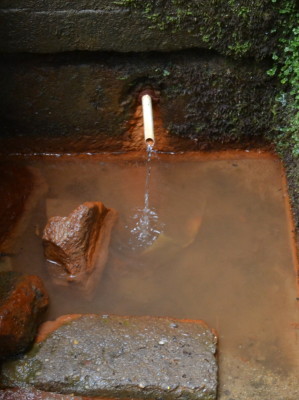Ad Fontes!
Musings | 4/1/2015 @ 16:00
 Emergence of many movements both inside and outside of Protestantism is often driven by the idea of recovering original shape of Christian faith that was supposedly neglected, superseded, covered by dust and lost from sight of present Christian church(es). This is why John Hus from Bethlehem chapel's pulpit insisted on coming back to original teaching of Jesus. This is why Martin Luther wanted to preach the Holy Gospel without “human additions”. This is what bothered Soren Kierkegaard so badly when he contrasted low threshold of Church of Denmark with high standards of “the New Testament Christianity”.
Emergence of many movements both inside and outside of Protestantism is often driven by the idea of recovering original shape of Christian faith that was supposedly neglected, superseded, covered by dust and lost from sight of present Christian church(es). This is why John Hus from Bethlehem chapel's pulpit insisted on coming back to original teaching of Jesus. This is why Martin Luther wanted to preach the Holy Gospel without “human additions”. This is what bothered Soren Kierkegaard so badly when he contrasted low threshold of Church of Denmark with high standards of “the New Testament Christianity”.
This is (in my humble opinion) why Pentecostal churches often call themselves by very vague titles that don't disclose historical origin of their confession. We are Assemblies/Churches of God Himself! We are Apostolic churches! This intrinsic characteristic may result from Pentecostal hermeneutics and from biblicism which ruled over Pentecostal world during first five decades of it's existence: What happened then, should happen now! Stories are not mere history. They are examples to follow. This mentality of so called restorationism could be not only seen in our treatment of Acts 2 and 8, but also in certain excesses which were characteristic for conservative Pentecostal churches (e.g. laying down fleece, washing feet, women wearing scarfs, etc.)
Although I tend to be quite critical of these excesses, mentality of restorationism is in my opinion the right one to embrace. Finding our roots and holding fast to them is the promising way to remain sound, real and not to frantically adapt to emptiness of this postmodern world as if we were some weird kind of religious business that tries hard to do advertisement, raise budget and to defeat rival companies. But before we approach first century Christianity, let us be aware of certain drawbacks that may render our pursuit meaningless.
- What we gonna do if our quest for original shape of Christianity reveals something much different than what we thought it would?
- What if subject of our quest becomes compromised by our quest itself?
- What if validity of our quest becomes compromised by our findings?
(1) Our confessional and academic boundaries do limit scope of our options. Conservatives often forget to employ history in their biblical theology. Liberals don't do biblical theology at all since they no longer own something that could be called “Bible” in the original meaning of the word. And progressives are so busy “rethinking” that they have no time left for actual thinking. Now… Whatever group we might happen to fit in, are we willing to stretch ourselves in order to fit the shape of original Christianity and do not to do it vice versa?
(2) It may happen that once we endeavor to peel the husk off the kernel of Christian faith, we may not stop peeling until there's no kernel left. Subject of our faith is revelation. And if you deny revelation, faith becomes ultimately irrelevant. Of course, if we abandon quest for original Christianity, we will eventually find another subject of faith in either feeling and emotion or in pure reason, thus creating a new religion, which is no longer the Christian one.
(3) Therefore I propose that restorationism is inevitable as long as we want to keep Christian faith Christian. But what if we happen to find out that restorationism was by no means held by those whom we try to restore? I know that validity of our quest becomes compromised if our motives are overloaded with some retrophilic or doctrinal presuppositions. If you expect to find messianic Judaism, apostolic-prophetic hierarchy or missional madness, your attempt is probably doomed. But more seriously, whatever you'll find at the beginning of Christianity, it will not be restorationism. Actually, if you look on the history of the first church, you'll see just the opposite. Process of adaptation to Gentile world, replacing Jewish roots and writing brand new holy books of apostolic teaching. Let us ask a final question: Are then Catholics right when they say that apostolic teaching is mere seed of the Holy Tradition planted into history? Or… is the first century anti-restorationism standalone tenet which is to be heaved up to our age?
https://selah.cz/musings/ad-fontes/